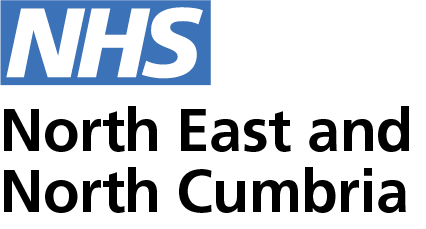At the heart of the North East and North Cumbria Secure Data Environment is a strong commitment to public and patient involvement. We have developed an extensive strategy that actively involves, listens to and engages with the population of the North East and North Cumbria.
Not only are our public panel of members involved in the programme governance, they have been involved in the design and development of our public information campaign.
Our approach builds upon the successful public engagement work as part of the Great North Care Record programme. We continue to work closely with the public, engaging them in discussions about how we manage and make information from their health and care records accessible to researchers and planners. Together, we are developing clear principles to ensure transparency and trust in how data is made accessible.
This is a core part of the programme to ensure transparency and co-design our approach. 14 public members have been recruited who are embedded in the governance structure.
The public members recognise the value and quality of the data held in the Secure Data Environment and embrace their role to ensure that patient health and care data is used appropriately, prioritising the best interest of the local population.
Together they share a broad knowledge-base and lived-experiences across a range of topics and expertise and the current demographic makeup of the group is diverse with a good split of male and female members, including people with lived experiences of disability and other medical conditions, and from other ethnic backgrounds and equality groups.
We are looking for more public members to ensure they are even more representative of our region.
Since being established the public members have:
· Given 512 hours of their time
· Taken part in 15 task and finish groups
· Taken part in 13 workshops
· Taken part in four focus groups
· Reviewed eight key documents
· Attended eight strategy boards
Co-produced plans including:
· The involvement strategy
· Public survey questions
· Developed plain language about research and non research terminologies
· Developed evaluation criteria for assessing research applications for the Secure Data Environment
· Developed public messages for complex data topics
· Developed branding and communications materials that will be shared with the public
· Public involvement activities include street surveys of over 1500 people and impact assessments.
Other involvement activities
It is important to understand what local populations think about the use of their patient data, what concerns they have and how these may be addressed.
In January 2023, the programme spoke to a sample of the population in the North East and North Cumbria, with 375 people giving their views. From this survey and combined with patient feedback gained from the Great North Care Record, and using demographic data available from national statistics - the programme learned a lot about how different groups of people have different attitudes towards patient data for research.
Reviewing the findings with the public members group, the following populations were found to need further targeted support on their concerns and needs for information about the Secure Data Environment.
● Remote residents – People living in larger communities outside major conurbations but without full access to key services
● Affluent educated – People who are well educated and more affluent i.e., those with higher household incomes
● Starting outers – Students, younger couples and singles in flats (i.e. aged 16-24 years)
● Cautious women – Women aged 30 – 59 years identified in specific areas of the region and unwilling to share health data/keen to opt out
● Diverse deciders - People on lower incomes with varied needs, who are struggling to make ends meet
● Cultural collectives - Ethnic minority communities including established immigrant and the Jewish communities
In September 2024, further population level survey took place, increasing the number of people to 1050 to include more people in the groups identified above.
Focus groups
Focus groups will take place specifically of the priority groups to understand better their views and to consider questions about the use of identifiable data to create anonymised and pseudonymised data sets along with other issues that come out of the street survey report.
Young people’s on-line survey
A survey is being shared and targeting younger people (16 - 24) via social media and direct engagement with local colleges and universities.
Links to reports:
· Summary PPIE report
· Situational review – desk research to understand what insights are already available
· Equality impact assessment–to help us understand which demographic have already opted out of sharing their healthcare information
· Street survey of 400 people – to help us understand how people feel about their data being used in the Secure Data Environment
· A further street survey of 1000 people took place in summer 2024 which explored attitudes further and targeted particular demographics in more detail.
Further work on focus groups and deliberative events are scheduled to take place over the coming months.
